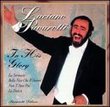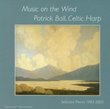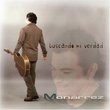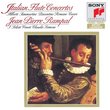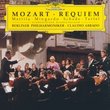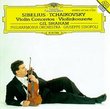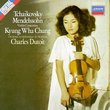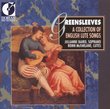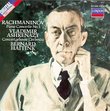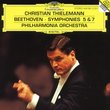| All Artists: Joseph Haydn, Christopher Hogwood, The Academy of Ancient Music, Cecilia Bartoli, Uwe Heilmann, Ildebrando D'Arcangelo, Andrea Silvestrelli, Roberto Scaltriti, Jose Fardilha, Colin Campbell Title: Haydn - L'anima del filosofo ossia Orfeo ed Euridice / Bartoli · Heilmann · D'Arcangelo · AAM · Hogwood Members Wishing: 0 Total Copies: 0 Label: Decca Release Date: 2/11/1997 Genre: Classical Styles: Opera & Classical Vocal, Historical Periods, Classical (c.1770-1830) Number of Discs: 2 SwapaCD Credits: 2 UPC: 028945266824 |
Search - Joseph Haydn, Christopher Hogwood, The Academy of Ancient Music :: Haydn - L'anima del filosofo ossia Orfeo ed Euridice / Bartoli · Heilmann · D'Arcangelo · AAM · Hogwood
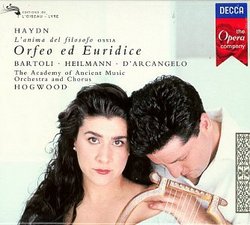 | Joseph Haydn, Christopher Hogwood, The Academy of Ancient Music Haydn - L'anima del filosofo ossia Orfeo ed Euridice / Bartoli · Heilmann · D'Arcangelo · AAM · Hogwood Genre: Classical
A surprising fact from the musicological realm is that Haydn wrote about the same number of operas as Mozart--though it's true that some of them were written for the marionette theater at Esterhaza, rather than the opera h... more » |
Larger Image |
CD DetailsSynopsis
Amazon.com essential recording A surprising fact from the musicological realm is that Haydn wrote about the same number of operas as Mozart--though it's true that some of them were written for the marionette theater at Esterhaza, rather than the opera house. In other words, old "Gius[eppe] Haydn"--as the title page of this opera refers to him--was a master. Better known to some by its alternate title, L'anima del filosofo, Haydn's Orfeo ed Euridice was written in 1791 for the King's Theater, Haymarket, during the composer's first English sojourn, but went unperformed there or anywhere else until 1950. The libretto, by Carlo Francesco Badini, is based on Ovid's Metamorphoses, with its decidedly unhappy ending to the story (Euridice dies a second time, Orpheus is poisoned, and the Bacchantes perish in a storm). While the score as a whole does not possess the kind of momentum or dramatic sweep one finds in Mozart, it nonetheless is vintage Haydn: highly imaginative in its use of a large orchestra, with numerous fine choruses and beautiful arias. A strong cast has been assembled for this recording, with Cecilia Bartoli a special delight in two roles--Euridice, a lyric role requiring remarkable agility, and the Genio (or Sybill), originally written for a castrato, whose one aria ("Al tuo seno fortunato") is a coloratura tour de force. The score is played with marvelous fluency by the Academy of Ancient Music under the direction of Christopher Hogwood, contributing to a realization that is, in every respect, elegantly informed. --Ted Libbey Similar CDs
Similarly Requested CDs
|
CD ReviewsHaydn's "Orfeo ed Euridice" worth discovering daniel0302 | New York, NY United States | 01/19/2001 (5 out of 5 stars) "Although Haydn's "Orfeo ed Euridice" has been recorded a few times before, it is still a relatively obscure opera. It is easy to hear the music's roots in Gluck (and the possible influences of contemporaries such as Mozart and Cimarosa) but Haydn's music has a distinct voice, and is quite lovely - at times delightful, and at times tragic. This is an opera well worth discovering by anyone interested in music from the baroque and classical periods.Both Cecilia Bartoli and Uwe Heilmann are fantastic. Bartoli's versatility as an artist is well displayed in this recording; she sings both treble lead roles. Euridice was writen for a lyric soprano, and the role of the Genio, with its showstopper coloratura aria, was written for a male castrato. Bartoli skillfully uses two different vocal colors - warm and rich for Euridice, bright and shimmery for the Genio - and she gives much pleasure in her performance of both roles, and utilizes a remarkable range. Heilmann's reedy voice is perfectly suited to the music, and he captures the idealism, pathos, and tragedy of the character. He sings with lovely tone, and tasteful and intelligent musicianship, and is often genuinely touching. The young bass Ildebrando d'Arcangelo sings beautifully as well, skillfully using his warm and rich yet flexible voice in his two scenes.Christopher Hogwood is at home in this music and leads The Academy of Ancient Music in a sparkling playing of the score. This recording outclasses the previous recordings despite their strengths. An excellent addition to any library, this recording is essential for fans of Haydn, Bartoli, or Heilmann,"
|

 Track Listings (26) - Disc #1
Track Listings (26) - Disc #1